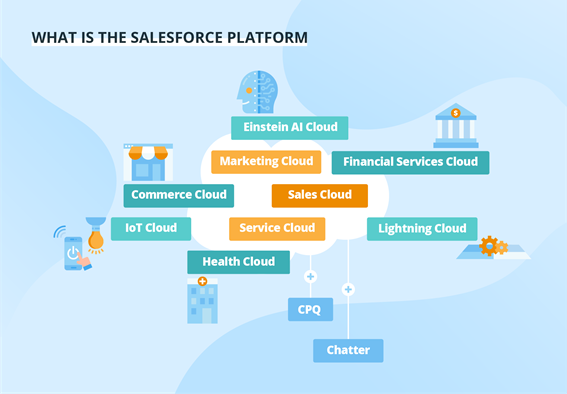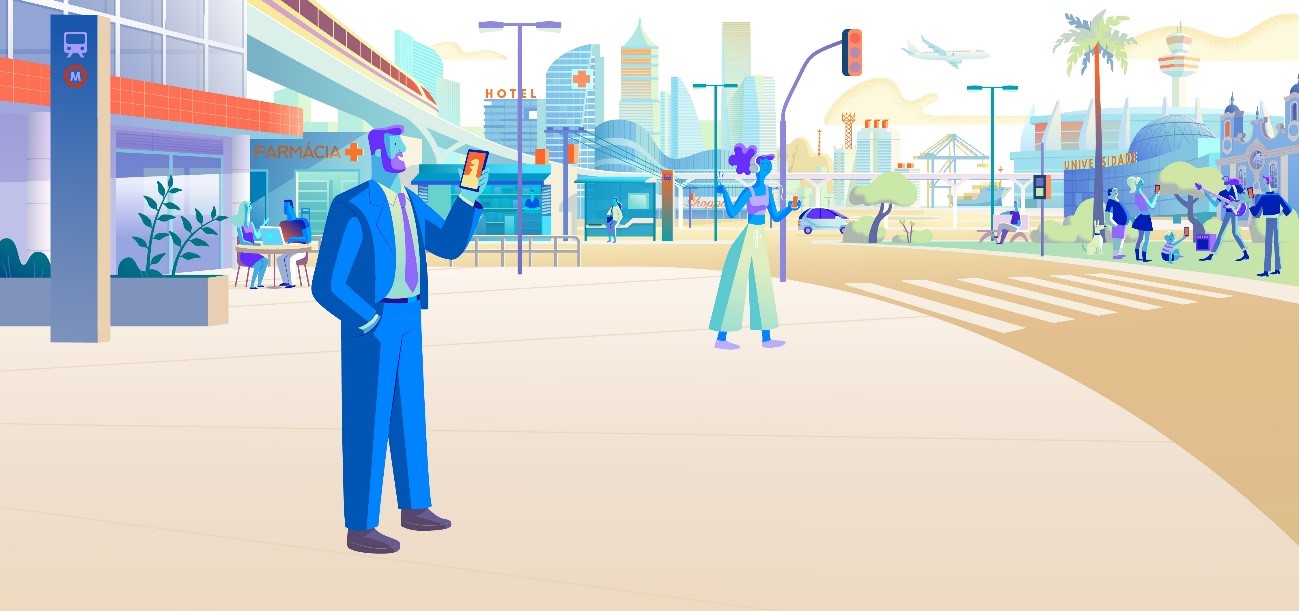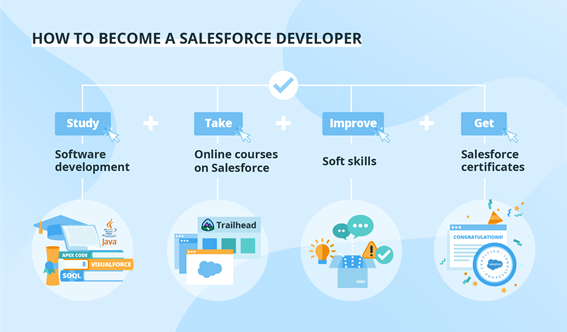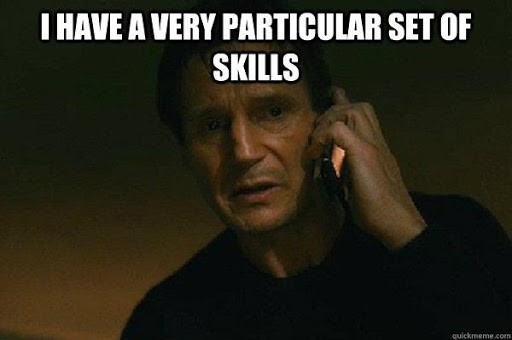
What is a Salesforce developer?
Ever wondered what a Salesforce developer does? Here at Near Partner, we happen to know a few of them. Say hello.
Meet Valter Abreu. He has been working at Near Partner since mid-2019. A big fan of flexible workhours (who isn’t really), Valter has been to every edition of Websummit since it landed in Portugal. Last year, he lost the coveted prize of Office Comedian to Camillo Penna, but that’s a whole other story.
Valter is a Salesforce developer, specializing in Salesforce deployment methodologies. He describes himself as a “roll-up-your-sleeves technologist who thrives in a think-tank like environment”. That sounds fancy, but what does it really mean?
Salesforce is the world’s leading customer relationship management (CRM) platform. The US-based company achieved this status by uniting marketing, sales, commerce, service, and IT teams from anywhere with one integrated platform that powers an entire suite of connected apps. With Salesforce, corporations can focus their efforts on what’s important right now: stabilizing their business, reopening, and getting back to delivering exceptional customer experiences.

The salesforce platform in a nutshell. Plenty of high-sounding names here but it boils down to one word: app integration. Source: Salesforce
To better understand what all this means, we turned to Valter, hoping he could explain with a touch of humour. How does a Salesforce developer solve companies’ problems? What are the key skills one must possess to succeed?
Let’s take it from the top.
What are the key skills of a software developer?
First of all, let’s start with the skills. Valter was quick to identify the characteristics that make a great salesforce developer.
Language skills
Language skills are important to a salesforce developer, just not the kind that works well on vacations. Salesforce requires developers to master a handful of particular programming languages. Apex is Salesforce’s proprietary programming language with Java-like syntax. Visualforce is a markup language that lets you create custom Salesforce pages with code that looks a lot like HTML. Becoming a successful Salesforce developer requires mastering these programming languages, and a few more universal others: JavaScript, HTML, and SQL.
But, Valter adds, becoming a Salesforce Yoda also requires mastering another type of language: business talk. A typical Salesforce project involves solving broad business issues. It requires programmers to understand the whys behind the what.
Take QMC Telecom.
QMC is one of those companies we use everyday, without knowing it. They design, build, own and operate Distributed Antenna Systems (DAS), cell towers, rooftops, and small cells that enhance mobile connectivity.
With over 2,500 assets installed and under development, QMC works behind the scenes with an extensive array of partners including shopping malls, hotels, hospitals, educational facilities, transportation infrastructure and airports, so we all have network on our phones.

QMC’s sleek website. QMC Telecom works in the background to bring you unlimited connectivity.
QMC contacted Near Partner to synchronize information between CRM and Operations with Salesforce. Crucially for QMC’s 200 internal users, communication between sales teams, operations and providers needed overhaul unification.
Solving this problem required the team of Salesforce developer to understand how the business works, the customer’s fundamental needs, and what mattered the most to its staff. It also meant analyzing relevant business as well as legal requirements, something you might not associate immediately with a Salesforce Developer.
To make sure everything ran smoothly, we also deployed a project management team to support our Salesforce Developers. They were the ones ticking all the boxes, making sure deadlines were met, strategizing and prioritizing. When the smoke cleared, Salesforce Sales Cloud seamlessly connected what had once been several isolated processes.
Translation skills
Communication, when dealing with clients, business owners, and business managers is not a “plus” but a must. Salesforce developers work closely with people with limited programming background so a good Salesforce developer must be able to articulate the steps taken. It requires him or her to translate what’s being asked from business language to Salesforce language.
At some point, a Salesforce developer will have to work with pretty much all the departments of a business, from marketing to sales. Understanding management jargon and its inherent priorities is essential. Projects are usually time sensitive and fit into a bigger picture of corporate strategy, which requires developers to sympathize and adapt quickly.
Salesforce fluency
A Salesforce developer must be all-things-salesforce-fluent. We mean Visualforce, 3rd party integration, customized function development, Lightning App Builder, Force.com, Lightning Components, and so on. But also fluent in configuring CRM products like Sales Cloud or Service Cloud.
Because of this, Salesforce developers are highly skilled professionals. They are software developers that have branched out to master Salesforce technology in all its dimensions. High demand and specialization means that hiring a Salesforce developer can be an onerous task for a business. This is where Valter and his colleagues here at Near Partner come in. Businesses can have access to decades of compounded experience and deliver a solution to the market in record time without the responsibility of hiring a team themselves. Recently, we created a guide on how to speed up time-to-market with low code solutions such as Outsystems and Salesforce.
In short, becoming a Salesforce developer requires a perfect blend of hard and soft skills. The process of becoming one is neatly summarized by Salesforce themselves. Have a look.

Becoming a salesforce developer looks rather simple right? In fact, a proficient coder has many hours under his or her belt. Source: Salesforce
Why are Salesforce developers in such high demand?
Salesforce is very intuitive and user-friendly. In fact, it democratised the access to CMRs with its Sales Cloud solution. Virtually all businesses can make use of it, without a big IT department. And, sure, any business will still benefit from the basic features of a Salesforce platform.
However, Salesforce is not just your basic CMR (some would say it is a way of life). Tailoring Salesforce to a business specific needs requires in-depth expertise only a Salesforce developer can provide. In sum, personalisation and customisation is why Salesforce developers and consultants are in such high demand.
But what do Salesforce developers do exactly?
Every business is unique and so are their specific needs. But let’s try to illustrate what a Salesforce developer does with a quick example.
One of the most basic tasks you can automate with, say, the Sales Cloud platform is to send a follow-up email to your clients, a few days after a purchase. Even emailing a reminder of an abandoned shopping cart is quite simple and can be programmed with ease. These are tasks anyone can perform by themselves–with or without knowledge of software development or programming of any sort.
What if you want to track your customer’s interactions with your, for instance, blog posts, and send them personalised marketing emails or exclusive deals based on the blog categories theyinteracted the most with? This is absolutely possible to do with Salesforce, but you will probably need a Salesforce developer–unless you have unlimited time to figure it out yourself.
Salesforce potential goes even further. Create if/then tasks based on user behavior? Check. Email automatic quotes directly to the customer, without human intervention? Positive. Establish a process of automatic approvals, based on pre-defined criteria? Certainly.
In short, a Salesforce developer helps a business set up and configure their Salesforce platform and customise it to the business’ very own needs. It also helps the business users to adopt the various Salesforce platforms and take advantage of all the features to grow the business.
Does your business need a hand managing customer relationships? At Near Partner, we are Salesforce Consulting Partner and we have a “very particular set of skills”.

Contact us about our Salesforce Services and find out what our talented salesforce developers can do for you and your business. Are you simply curious and would like to know more about what a Salesforce developer could bring to the table? Get in touch!
As Salesforce consulting partner, we love to brainstorm–all our developers are professional brainstormers and idea-bouncers–about the potential of Salesforce platforms.





